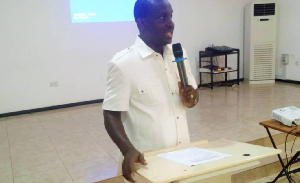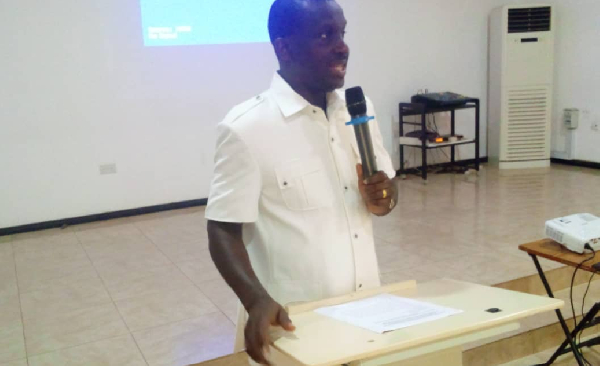 Samuel Adom Botchway, the Acting Registrar of the Births and Deaths Registry
Samuel Adom Botchway, the Acting Registrar of the Births and Deaths Registry
Samuel Adom Botchway, the Acting Registrar of the Births and Deaths Registry (BDR) has revealed that plans are far advanced to construct new office complexes for all 16 regions, including the National Headquarters, and to provide the necessary logistics to improve efficiency and working conditions across the country.
Speaking at a one-day workshop for district registrars in the Volta Region on Document Fraud and Awareness in Ho, Botchway said all paperwork, funding, and planning have been finalized to begin construction soon.
“We are ready to commence work on new office buildings across all regions. We are also in the process of procuring over 300 motorcycles and vehicles to enhance staff mobility and service delivery,” he disclosed.
He acknowledged that logistical challenges and inadequate office space have long hindered the Registry’s work but affirmed that steps are being taken to modernize and digitize their operations nationwide.
“Within two months of assuming office, I have mobilized efforts to ensure that every region—including the National Office, has a permanent and befitting workplace,” he said.
Botchway noted that one of his top priorities is to eliminate the widespread rejection of Ghanaian birth certificates by foreign embassies due to authenticity concerns.
“We want the Ghanaian birth certificate to become one of the most robust and credible identification documents in Africa and globally,” he said.
The Registrar highlighted the need for strong IT infrastructure, revealing that steps are being taken to upgrade existing systems, digitize all offices, and establish a backup and data recovery site to protect national records.
“We are in a digital age. Our systems must be solid and resilient. My goal is to make BDR’s IT system one of the most secure in West Africa,” he added.
He also outlined an innovative approach that would allow people to access birth records across districts, regardless of where they were born.
“If someone was born in Accra but now lives in Ho, they should not have to travel back. We want a system where records can be accessed and processed seamlessly across the country,” he explained.
Botchway expressed concern about the low death registration rate, which stood at approximately 38 per cent, attributing it to cultural beliefs and religious practices.
“For instance, some religious groups bury their dead almost immediately, with no formal registration. We need to educate the public on why death registration is just as important as birth registration,” he stated.
He mentioned ongoing discussions with the Minister for Local Government to involve Metropolitan, Municipal, and District Chief Executives (MMDCEs) in driving public education and increasing compliance.
“This is why the Registry has ceded its district offices to the Local Government Service, so assemblies can play a direct role in overseeing this function,” he added.
Volta Regional Minister, James Gunu, commended the initiative and reaffirmed his commitment to securing a modern office complex for the regional BDR office.
“When I visited, the staff were operating in a dilapidated structure. I have received confirmation that land has been secured, and I am determined to see this project through,” he stated.
He emphasised the importance of the BDR to economic planning, legal identification, national security, and development.
“Whether we are talking about urban or rural development, reliable data from the BDR is essential. It is time to reposition and reinvigorate the department for the future,” he said.
The training and reform agenda by the Births and Deaths Registry represents a renewed commitment to enhancing identity systems, fighting document fraud, and improving data for national development.


